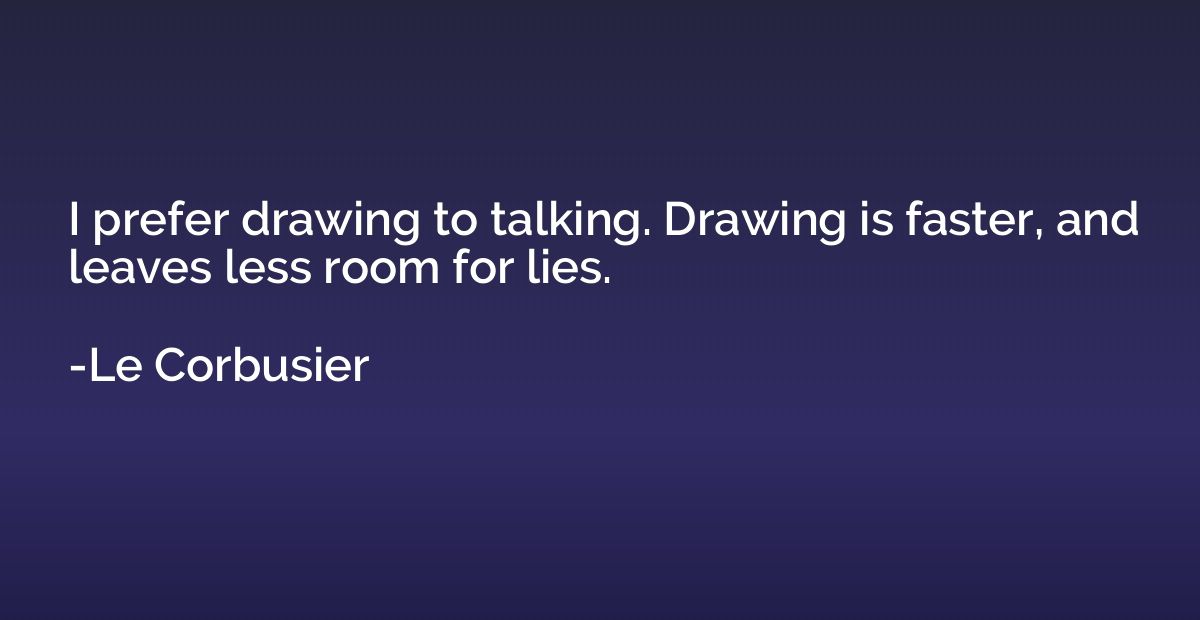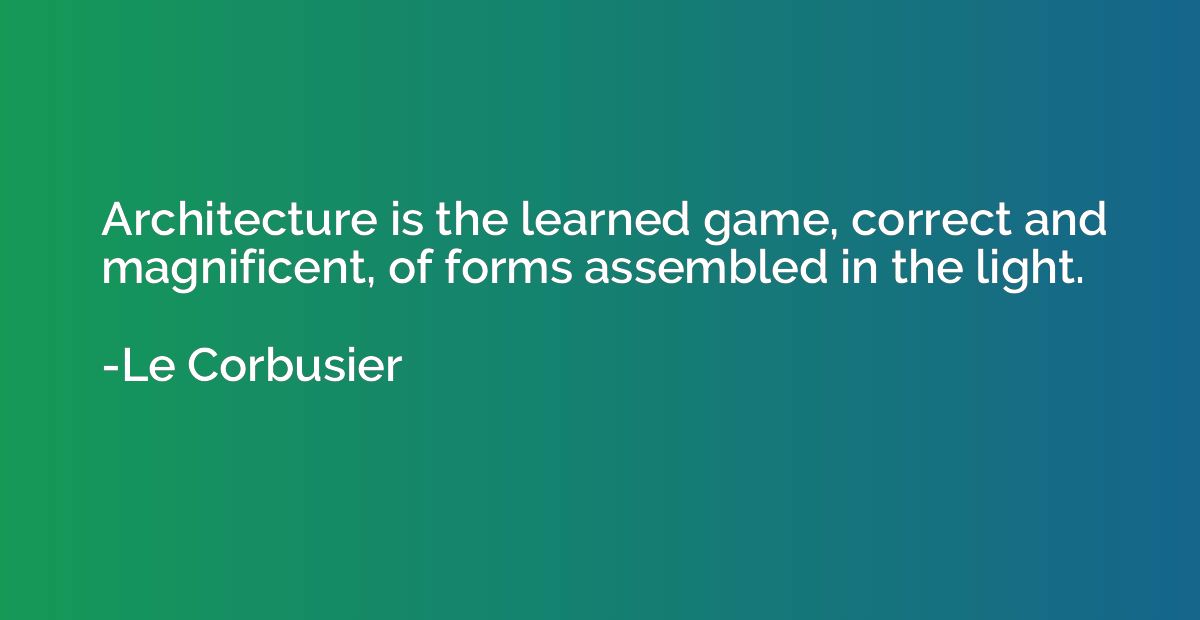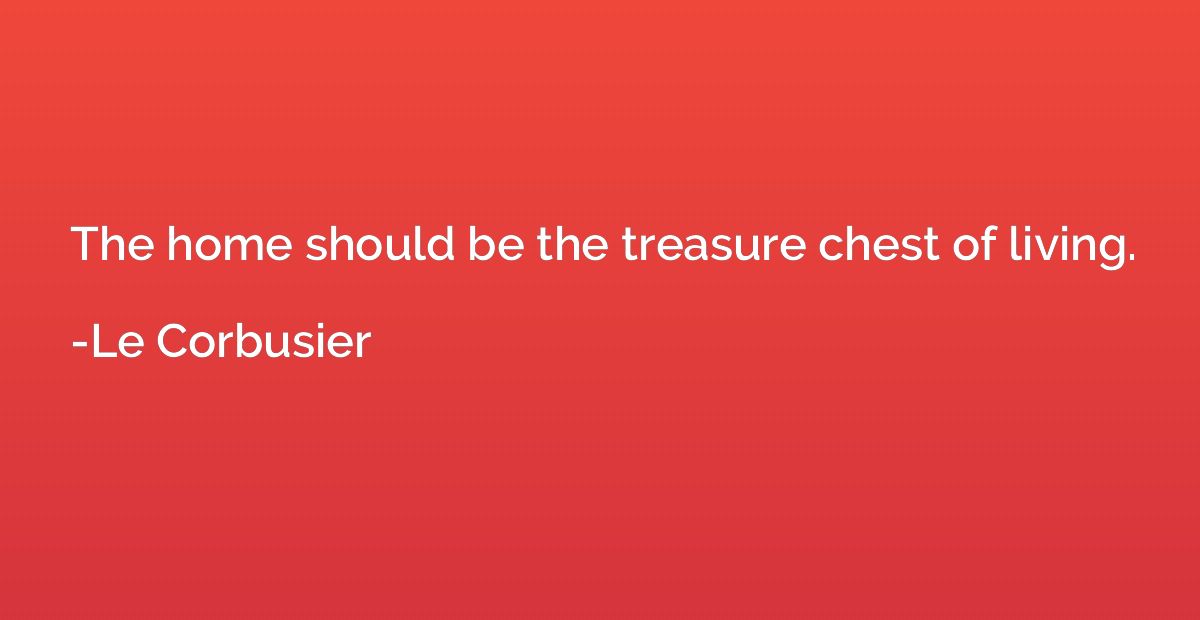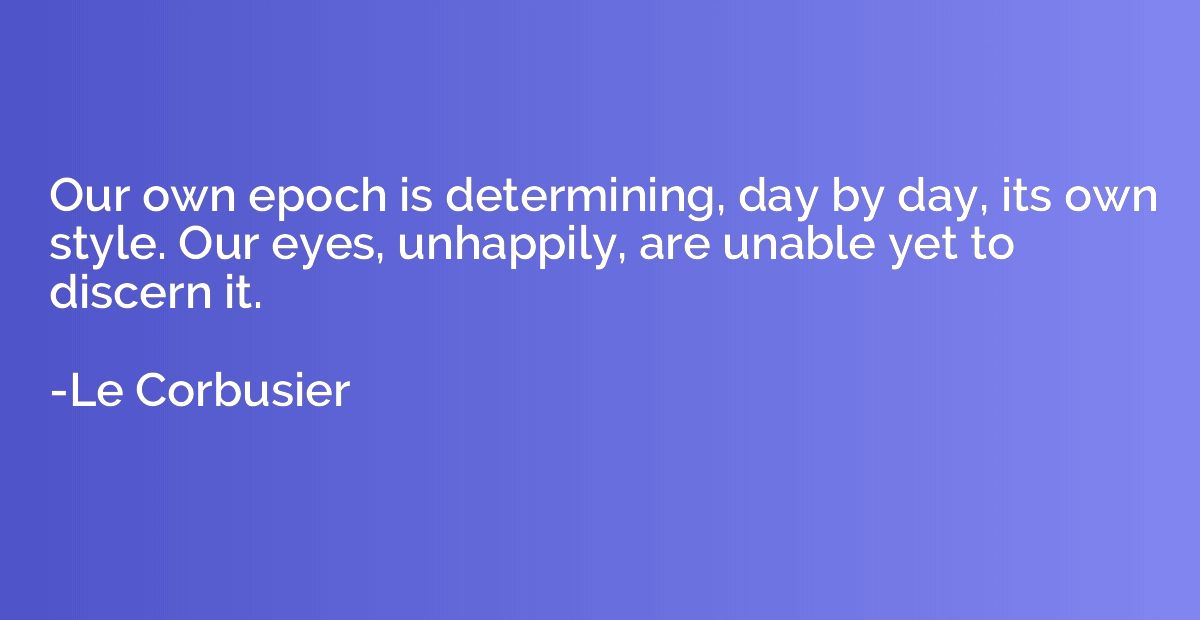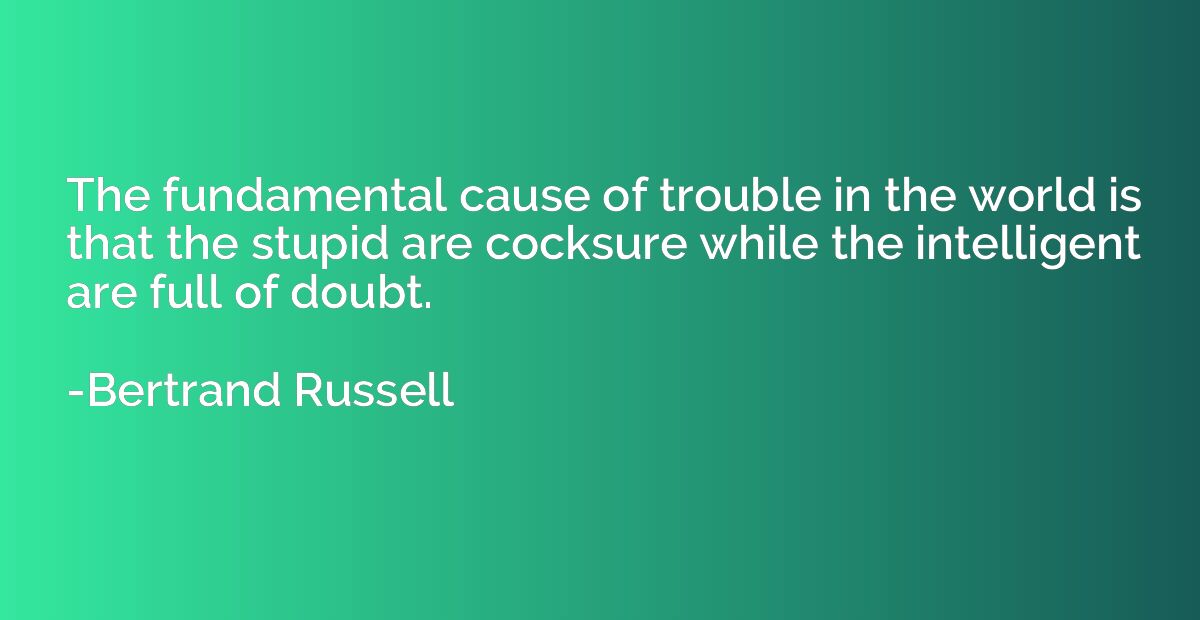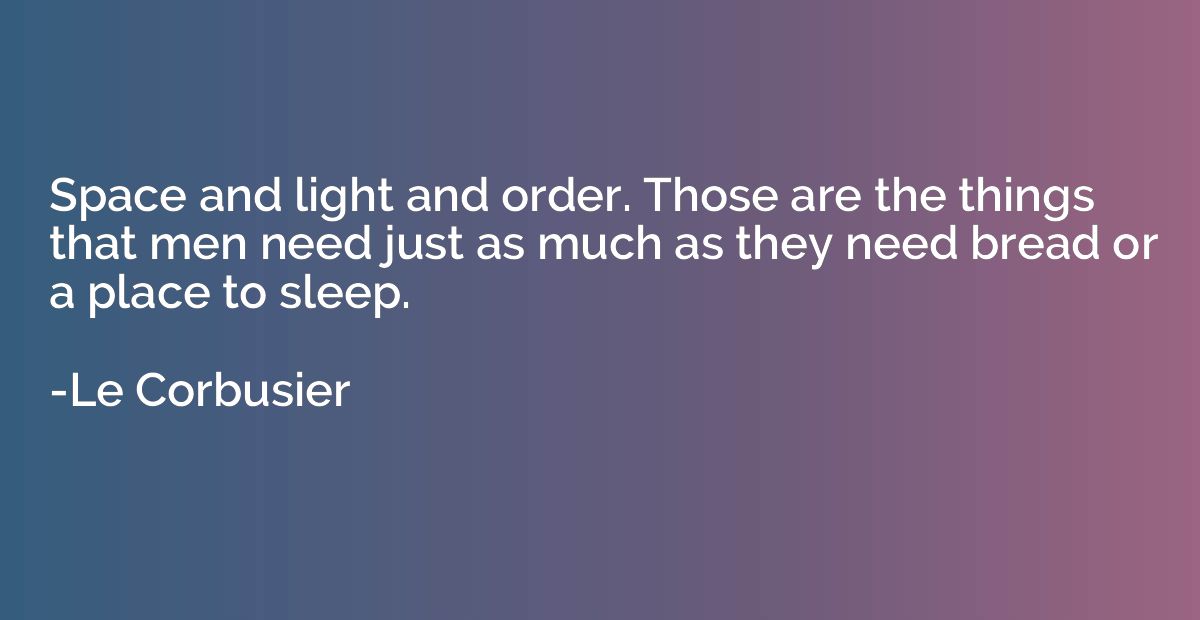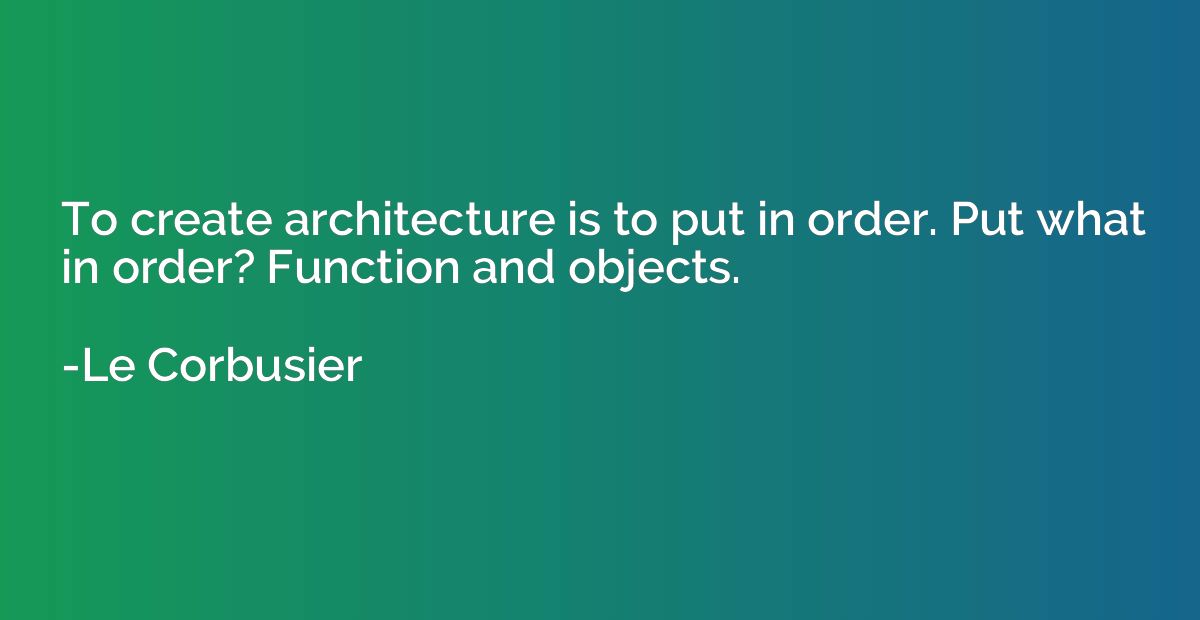Le Corbusier Quotes
A collection of quotes by Le Corbusier.
Le Corbusier, born Charles-Édouard Jeanneret-Gris in 1887 in Switzerland, was a renowned architect, urban planner, and designer who played a pivotal role in shaping modern architecture. He is known for his groundbreaking theories on architecture and urbanism, as well as his innovative designs that challenged traditional notions of space and form.
Le Corbusier's career spanned several decades, during which he revolutionized the way people perceived and experienced architecture. He advocated for the use of modern materials and techniques, focusing on efficiency, functionality, and simplicity. He believed that buildings should serve the needs of inhabitants while harmonizing with their surroundings.
Some of Le Corbusier's most iconic works include the Villa Savoye in France, the Unité d'Habitation in France and Germany, and the Chandigarh Capitol Complex in India. He also contributed to the design of the United Nations Headquarters in New York City.
Beyond architecture, Le Corbusier was deeply interested in urban planning and the social impact of architecture. He developed the concept of the Radiant City, which emphasized the importance of open spaces and the separation of functions within a city.
Le Corbusier's ideas and designs continue to inspire architects and urban planners worldwide. His influence on modern architecture can still be felt, and his legacy remains significant in the field of design. Le Corbusier passed away in 1965, leaving behind a diverse body of work and a lasting impact on the built environment.
